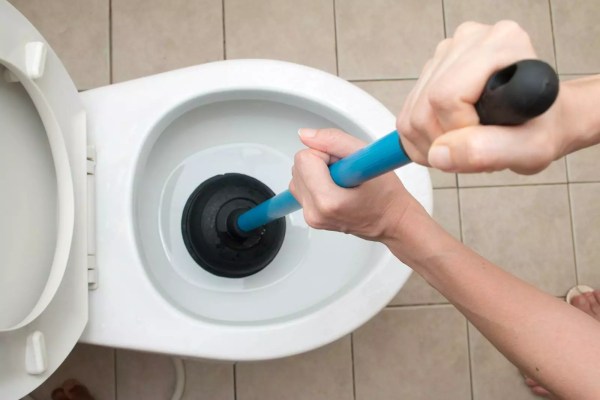Table of Contents
Introduction
A clogged toilet can be a frustrating experience, often leading to inconvenience, unpleasant odors, and potential water damage if not dealt with promptly.
Understanding the causes of a clogged toilet is essential in order to prevent this common plumbing issue. In this article, we will explore various reasons behind toilet clogs and provide you with useful information to help you tackle the problem.
1. Foreign Objects
One of the common causes of a clogged toilet is the accidental flushing of foreign objects. Children are typically more likely to contribute to this problem by flushing toys, jewelry, or other items down the toilet.
Even adults can accidentally drop items like cell phones, keys, or hygiene products into the toilet bowl, causing blockages in the plumbing system.
Key Takeaway: Avoid flushing any items other than toilet paper and human waste to reduce the risk of toilet clogs.
2. Excessive Paper Usage
Excessive toilet paper usage is a frequent cause of toilet clogs. While toilet paper is designed to break down easily in water, using an excessive amount at once can overwhelm the plumbing system and result in a blockage.
To prevent clogs, it is important to use toilet paper responsibly and flush it in smaller increments, allowing it to dissolve gradually.
Fact: Flushing excessive amounts of toilet paper can lead to problems not only in your toilet, but also in the sewer system, potentially causing backups and costly repairs.
3. Hard Water
Hard water, characterized by a high mineral content, can contribute to the formation of mineral deposits in your plumbing system. Over time, these deposits can accumulate in the toilet pipes, narrowing the diameter and obstructing the flow of water.
Regular maintenance and descaling can help prevent clogs caused by hard water. Utilizing a water softener or installing a particle filter can also be effective solutions.
4. Low-Flow Toilets
Low-flow toilets are designed to conserve water, but they also have a higher susceptibility to clogs. Compared to older, traditional toilets, low-flow models use less water, which may not be enough to effectively flush everything away.
If you have a low-flow toilet, it is crucial to avoid flushing excessive amounts of toilet paper or flushing bulky waste items that can cause blockages. Regular maintenance, including occasional snaking or auguring, may be necessary to keep your low-flow toilet functioning properly.
5. Sewer Line Blockages
A clogged toilet may be an indication of a larger issue within your sewer line. Several factors can contribute to sewer line blockages, such as tree roots infiltrating the pipes, accumulated debris, or structural damage to the sewer system.
A professional plumber can help diagnose and resolve sewer line blockages, which often require specialized tools and expertise for proper repair.
6. Tree Roots
The growth of tree roots near your sewer pipes can pose a significant risk to your plumbing system. As trees seek nutrients and moisture, their roots can invade and penetrate the sewer pipes, causing obstructions and blockages.
If you suspect tree roots may be the cause of your clogged toilet, contacting a professional plumber to assess the situation is crucial. Specialized equipment, such as root cutters or hydro jetting, may be required to clear the pipes and prevent further damage.
Frequently Asked Questions
Q: Can I use chemical drain cleaners to unclog my toilet?
A: It is not recommended to use chemical drain cleaners for a clogged toilet. These products can damage your plumbing system and potentially worsen the blockage. It is best to consult with a professional plumber for safe and effective solutions.
Q: How can I prevent future toilet clogs?
A: To prevent future toilet clogs, avoid flushing foreign objects, use toilet paper responsibly, and maintain your plumbing system regularly. Professional drain cleaning services can also help clear any buildup or potential blockages before they become a problem.
Q: When should I call a professional plumber for a clogged toilet?
A: If traditional methods, such as using a plunger or a plumbing snake, do not effectively clear the clog, or if you suspect a larger issue within your plumbing system, it is best to call a professional plumber. They have the expertise and tools to diagnose and resolve the problem without causing further damage.
Q: Is it possible to prevent tree roots from infiltrating my sewer pipes?
A: While it is challenging to completely prevent tree roots from infiltrating sewer pipes, there are measures you can take. Planting trees away from the sewer line, using root barriers, and regular inspections by a plumber can help detect potential issues and allow for proactive maintenance.
By understanding the causes of a clogged toilet and taking proper preventative measures, you can minimize the chances of dealing with this plumbing issue. In case of persistent or severe clogs, always consult a professional plumber for accurate diagnosis and prompt resolution.
nnn.ng
https://nnn.ng/faq/33813/













